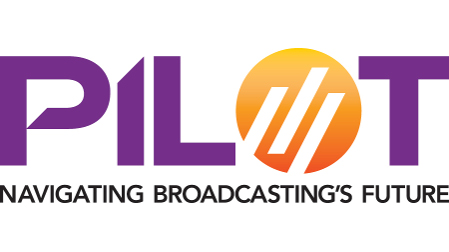NAB Releases Report Detailing How Online Privacy Changes Could Impact Digital Revenues
NAB PILOT report provides recommendations for broadcasters as third-party cookies phase out

WASHINGTON—The National Association of Broadcasters has released the final report of a six-month study that examines how the loss of third party cookies that track online traffic could impact broadcasters’ bottom line.
The use of third party cookies to track online traffic has long been identified as a threat to users’ privacy. As consumers become more aware of them and regulators—particularly in Europe—take aim at phasing out the use of such algorithms, the result could mean a decline in digital revenues for U.S. broadcasters.
These concerns prompted the National Association of Broadcasters to research the issue through its PILOT innovation subsidiary. The results of PILOT’s “First-Party Data Direct-to-Consumer Accelerator” report—now released—details a six-month long study on direct-to-consumer data strategies for broadcasters.
The results of the report, which was first made public at NAB Show New York last fall, details how the loss of third party cookies could create a $2.1 billion loss in annual digital revenue for the broadcast television and radio industry. PILOT’s accelerator program focused on mitigating revenue loss by examining how broadcasters can harness first-party relationships with their audiences. It also considered important issues such as content direction, product marketing and privacy compliance.
Nine broadcast companies participated in the six-month collaboration with support from the Google News Initiative. During the course of the program, participants met for high-level project sharing and ongoing education. During these gatherings, each company shared the progress of their individual projects and heard from industry experts on privacy and first-party data strategies. The results of the study are based on the work and output of the participating companies representing business, technology and audience engagement areas.
The report specifically called out those broadcasters who may drag their feet on the issue due to financial concerns.
"While operational costs can be estimated for launching a first-party data practice, the unknowns surrounding revenue in a post third-party cookie world could lead some to adopt a wait-and-see strategy," the report noted. "The assumed shift in valuation to first-party data would put those who adopt the 'wait-and see' approach at a distinct disadvantage because third-party cookies are being deprecated across many platforms.
Get the TV Tech Newsletter
The professional video industry's #1 source for news, trends and product and tech information. Sign up below.
"They would have squandered valuable time to streamline processes and amass as much first-party data as possible," the report adds. "As one broadcaster put it, “you can’t compare first-party data to third-party data now—the question is what happens when third-party data goes away—which it will.”
Additionally, PILOT commissioned an evaluation of the impact of the third-party cookie phase out in Europe and its impact on European broadcasters.
“Addressing this $2 billion problem for the industry is a high priority for digital leaders at broadcast companies,” said John Clark, NAB senior vice president of Emerging Technology and executive director of PILOT. “This report offers guidance with real examples for broadcasters. We can use first-party data to create more engaging content for consumers, while maintaining privacy standards.”
The full report can be accessed here.
Tom has covered the broadcast technology market for the past 25 years, including three years handling member communications for the National Association of Broadcasters followed by a year as editor of Video Technology News and DTV Business executive newsletters for Phillips Publishing. In 1999 he launched digitalbroadcasting.com for internet B2B portal Verticalnet. He is also a charter member of the CTA's Academy of Digital TV Pioneers. Since 2001, he has been editor-in-chief of TV Tech (www.tvtech.com), the leading source of news and information on broadcast and related media technology and is a frequent contributor and moderator to the brand’s Tech Leadership events.

